How to Build Content Clusters Effectively
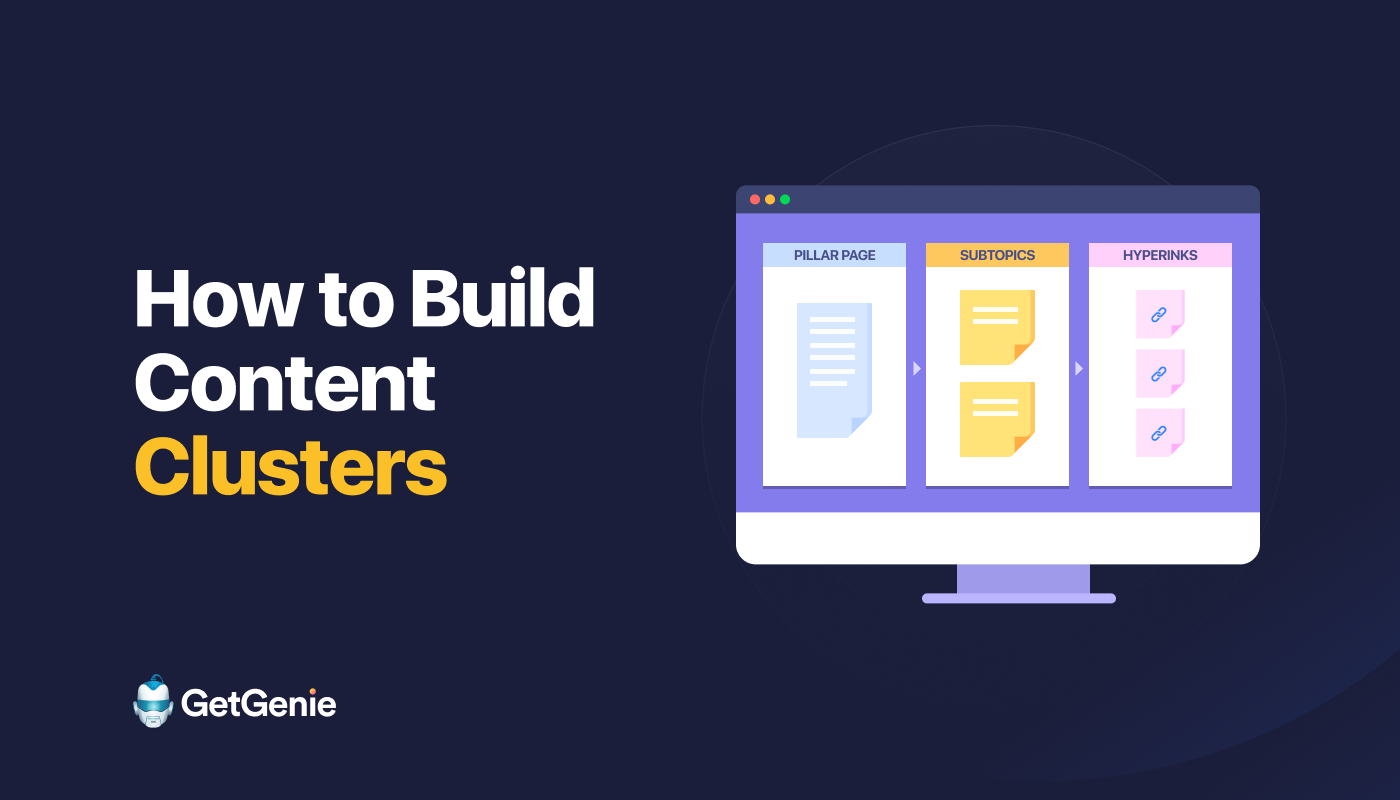
The importance of ranking keywords is paramount to boosting site organic traffic. But the rising competition has toughened the process of ranking your targeted keywords. Typical keyword optimization and average content pieces no longer guarantee webpages win higher SERP positions.
Instead, you have to build authority on your targeted topics with comprehensive info to break into the top spots in the SERPs. That’s where content clusters come in.
In this write-up, I will share actionable tips with relevant examples about how to build content clusters. With the proper creation of content clusters, your pillar & cluster pages will start ranking upward in the SERPs & getting high organic traffic in no time.
Understanding Content Clusters —
Content clusters are groups of related content that provide in-depth information about a topic. They are interlinked pages about a particular topic that facilitate search engines and users to navigate your site.
With comprehensive info, content clusters help ensure that your website visitors don’t have to return to Google search results to get the answers they’re hunting for.
Topic clusters consist of 3 components:
- Pillar content on a comprehensive topic
- Subtopics (they act as your “clusters”)
- Internal links among the pillar content and cluster content
Pillar Content
Pillar content is a catch-all of a topic cluster. They serve as a core piece of content on your website that provides succinct answers to every question readers might have about your topic.
A pillar page doesn’t cover everything exhaustively, rather provides an informative overview of the topic. But for that, you must know how to create a pillar page effectively.
Subtopics or Cluster Content
Cluster content encompasses detailed pieces that elaborate subtopics of a topic cluster. These pieces can be long or short-form content.
Cluster content narrows down your audience and better answers the questions based on search intent. If your main content is a book, your pillar content would be a glossary while your clusters are chapters.
Hyperlinks
Hyperlinks tie your cluster content to your pillar content and vice-versa. Through contextual linking, you can tell search engines and users that you have other related content on your website and direct them accordingly.
Based on the “book” analogy, if your pillar content is a glossary and your clusters are chapters, your internal links are the plotline.
Within topic clusters, the internal links make it easier for readers to find more content on the same topic. They also make it easier for crawlers to see how all your content relates to each other.
How to Build Content Clusters
Content clusters on your targeted topics will let you share unique and useful info with your readers. With that, you can gain topical authority for these subjects and easily rank higher in the SERPs, maximizing organic traffic.
Let’s check out how to build content clusters easily and effeictively —
Pick Your Content Topic
Your first task to build content clusters is to select a suitable content topic. The key here is to choose a topic that focuses on a single concept and is also broad enough. This will make sure your content is on point and also value-driven at the same time.
“Content marketing with AI” can be an ideal topic for content clusters. It’s broad and can act as a pillar page. Also, it can be divided into subtopics or topic clusters.
Examples of topic clusters include content marketing strategies with AI, how to use AI in content marketing, the role of AI in content marketing, AI content marketing benefits, and so on.
While choosing your content topic, ask yourself the following questions to easily get topics in your mind —
- Which topics have relevance to my brand?
- What topics my target audiences are interested in?
- Which content I have already covered?
- What types of content performed well in the past?
The criteria below will ease the process of creating topics for content clusters —
- Comparatively broad topic
- Search potential, not just search volume
- Satisfying informational search intent
Let’s say your topic is “AI SEO tool”. Now, type this topic/keyword in GetGenie’s “Blog Wizard” template.
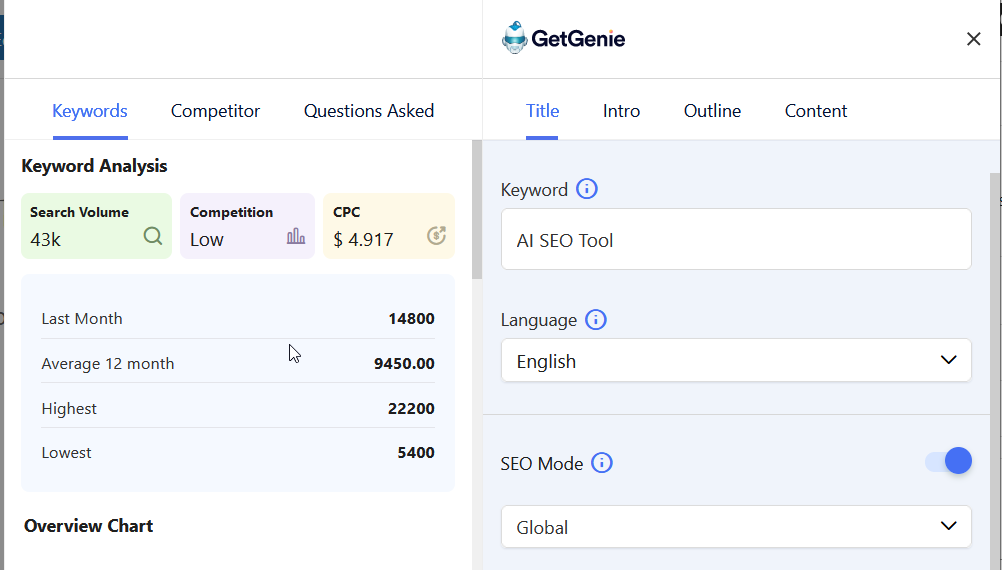
Now, discover related keywords & their search data. Don’t just get hung up on the search volume, as mentioned above, but also consider their search potential.
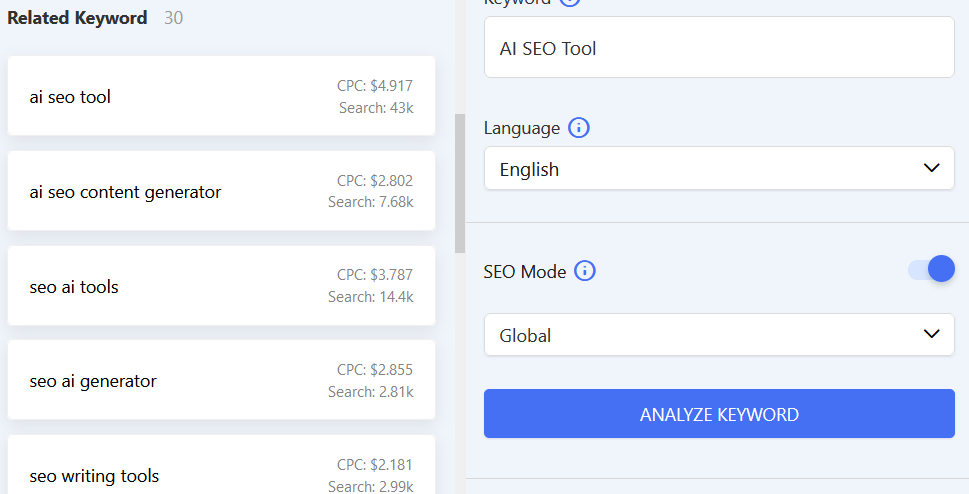
This topic fits all the 3 criteria, so it’s worth picking the topic to create a content cluster.
Create Your Subtopics
While doing keyword research, you can discover various related keywords. Some of these related keywords can show up in question format.These questions can be excellent tools to create your subtopics.
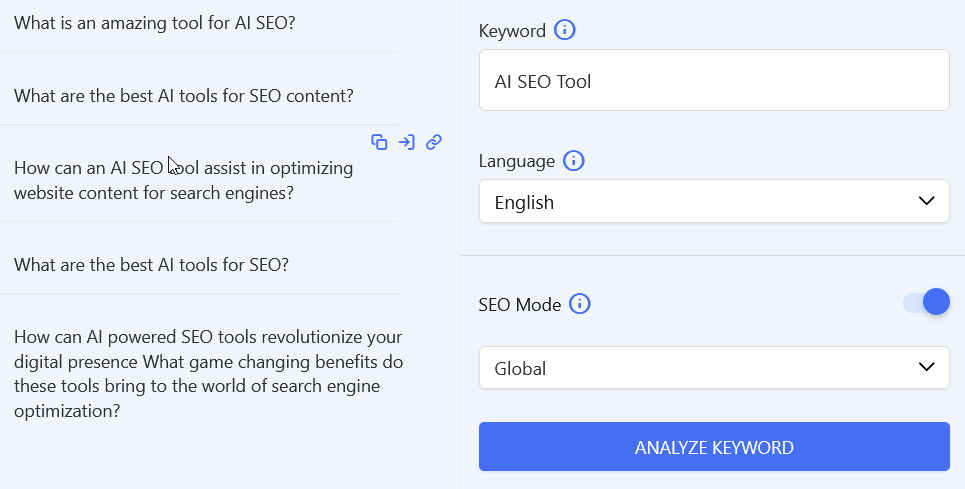
Also, you can type your topic name in Google’s search box and get keyword ideas from the “People Also Ask” and Related Searches sections to build subtopics.
Make use of tools like AnswerThePublic and forums like Reddit & Quora to discover what your readers want to know about the topic. You can also ask topic-related questions on your social media channels to capture what your clients are eager to know.
With these approaches, you can gather useful info about your topics helping you build subtopics for your content clusters.
Also, don’t forget to reach out to your support team to know what questions they usually receive concerning your chosen topics.
Make Sure to Audit Your Existing Content
You might have already created content pieces that can be clustered together. To find out these pieces, run an audit of your existing content. With this process, you can group similar content pieces under 1 cluster and also find pillar materials from the existing content.
To audit your existing content, you can use spreadsheets or tools like Ahrefs, SEMRush, and Ubersuggest. By conducting a content audit, you can detect duplicate content that may be hurting your SEO efforts.
Once you are done analyzing your existing content, link similar content with one another on a particular topic to create a topic cluster.
Detect Content Gaps
After the content audit, go for identifying any content gaps. Content gaps are the “missing info or pieces” of what users are looking for as compared to the results they get.
Once you identify content gaps in a particular topic, you can quickly create the missing content. This will let you generate real and qualified traffic to your site.
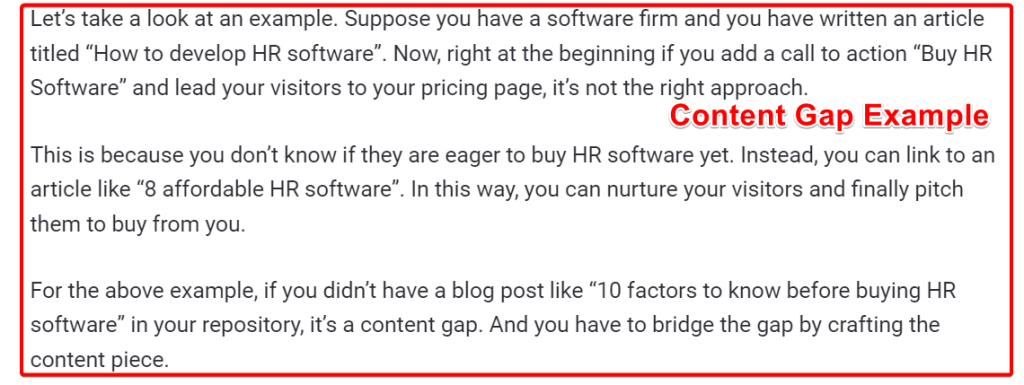
Figure out questions people are asking that you don’t have answers to on your site and create clusters around those questions if they require holistic clarifications.
Map out your clusters
It’s time to strategize your content clusters. Leveraging your keywords, you need to map all the related content pieces that hinge on your main topics. I would recommend using a spreadsheet for this step.
Finalize your ‘wheel/hub’ piece, and make sure your ‘spoke’ articles cover relevant search intents. In this mapping stage, you should decide which articles should link to each other – don’t forget internal linking is key to making a topic cluster come off.
Write & craft content
Now it’s all about producing top-grade content for your personas. You already have ample knowledge in your field, just write it down using the right keywords and tone to align with your personas’ intents.
Build the bulk of your topic clusters with evergreen content. While it’s fun to write about current events and ongoing trends, evergreen content remains relevant to search queries long into the future, making it a sustainable content marketing strategy.
Emphasize the following factors while writing your content to pull things off —
- Target your audience: Match your tone to the audience and search intent, and tap into a readability checker to make sure you’re not over-complicating things.
- Stress on quality: Top-notch content is far from avoiding spelling and grammatical errors (Ensure you avoid these!). Your content needs to be value-rich, compelling, and authoritative.
- Leverage your keywords: Make sure they are in your headlines and the text body relevantly so that Google knows your pages are relevant. Needless to say, you must avoid keyword stuffing.
- Optimize content for SEO: Follow an on-page SEO checklist to optimize your content for the search engine and make it easier for Google to capture and rank your content.
Interlink content relevantly
Once you are done creating all your content, link it all together. This means you should ensure that all your related content pieces are linked to your main topic’s page.
The interlinking of different related articles together will also help Google better understand your website structure and hierarchy.
Also, linking pages direct your website’s visitors through your website, keeping them on your site longer and amplifying the number of pages they visit.
You can put links throughout the content you write or list them at the end of your articles. Try both the linking methods and see what works for you.
Track Your Content
Content requires regular improvement to compete in organic search. But to know what needs improvement, you must track your content performance.
Organic traffic and engagement can be powerful performace metrics. While organic traffic implies how many visitors a page produces from SERP rankings, engagement is how your visitors interact with your site, like if they click any link or CTA button after landing on your site.
Avail of Google Analytics, Google Search Console, and other SEO tools like Ahrefs & SEMRush to check various content metrics like pageview, organic traffic, average time on page, bounce rate, engagement with a particular piece of content, and so forth.
Don’t Forget to Optimize and Update
To build topical authority, your content needs to maintain accuracy and latest data.
Periodically optimizing your content refreshes them and allows for identifying search intents you didn’t think about before.
Here are some indicators that a page requires optimization and update —
- The page isn’t ranking on 1st page for its target keyword or lost 1st-page rankings
- Organic traffic trends have flattened or dropped
- The page has a high bounce rate or low time on page
There’s no quick fix to SEO the above SEO issues. Tons of factors impact organic search engine rankings. And executing the topic cluster model takes time and effort.
But you should stay laser-focused on delivering value to earn topical authority and build a lasting online presence.
Over to you
Your primary goal to write website content is to reach your target audience, drive them to your site, and finally convert them. And this is what content clustering can do profusely.
I have shown you the entire process of how to build content clusters with concrete examples. Also, I put forth the necessary tools that you need to create topic clusters for your website.
Why wait then? Start building topic clusters for your website, earn authority, and maximize organic traffic, engagement, and conversions!

